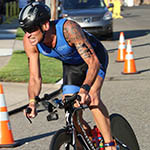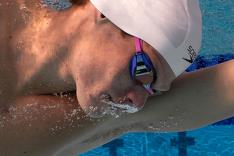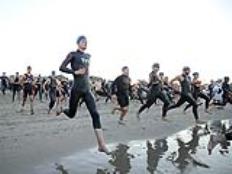
At some point, everyone experiences burnout while training and racing multisport events. Whether you're dragging, lethargic and not able to hit your normal pacing or have prolonged lack of motivation—and cannot bear the idea of one more mile—you might be suffering from burnout.
The bad news: Burnout is a real thing and must be addressed if you want to overcome it. The good news: Strategies for beating burnout are successful, fun, and will help you get back to your normal self.
Take a Break
Although this may seem like common sense, it can be emotionally hard not to train. You may experience guilt and FOMO, but if you're lacking motivation to complete a workout and are exhausted, you may need to take some time off. For some, just a day or two may be enough, while others may need to take several days. Not to worry: Fitness gains won't be lost if you resume training within about two weeks.
Cut Back Your Training Time
If you can still perform—you're hitting your paces—but are just not motivated, dial back your training by 50 percent for a week or even two. Then, over the next two weeks, ramp up your training again. A triathlon coach can help with modifying your training program to accommodate this.
Buy Something
Retail therapy works! Buy something new—not as a reward, but as a motivator. This could be goggles, a swimsuit or even running shoes to make your feel lighter on your feet. A wearable GPS can be motivation to get out the door, too. Of course, you will get faster on a new bike, but less-expensive purchases, like new cycling shoes, are great for snapping a down streak as well.
Realize That Life Gets in the Way
Examine your routine and consider what changes and challenges will affect your training and racing. Other stressors like career and family obligations, may be affecting your physical and emotional state. This is OK, as long as you acknowledge it and accommodate these other factors in your multisport training.
Set a Goal for a Different Distance
If you're always training for long-course events, try switching your focus to sprint distance and do some speed work. Short intense sessions will limit fatigue and increase motivation.
Crosstrain
Even though you're already training for three different disciplines, consider changing things up even more. Hit the gym, try riding gravel, go for a hike, inline skate, row or paddle, and keep your perspective—and muscles—fresh.
Focus on a Single Sport
If you love running, dial back other sports and consider focusing on a 10K or a marathon. If you just can't bear the idea of staring at the black line for another lap, consider doing cycling time trials or a gran fondo.
Just be aware that if you're suffering from physiological burnout, you'll need to first take some time off to let your body recharge before you chase a new goal.
Get Outside
Burnout is not uncommon for those who do most of their training indoors, regardless of the season. When your body's rested and ready, get outside. Even if you have to drive your bike to safe roads or find better trails to run, just get out under the sun and sky.
Train With Friends
If you do most of your training solo, recruit a friend. Or, join a masters swim group or a cycling or running club. Motivation to have fun with others is often enough to get out of a rut.
Stop the Madness
Stop watching the clock at the pool. Leave your bike computer at home, and just enjoy the ride. Don't strap on a wearable GPS for your run.
READ THIS NEXT: Your Ultimate Triathlon Offseason Guide
About the Author









Discuss This Article